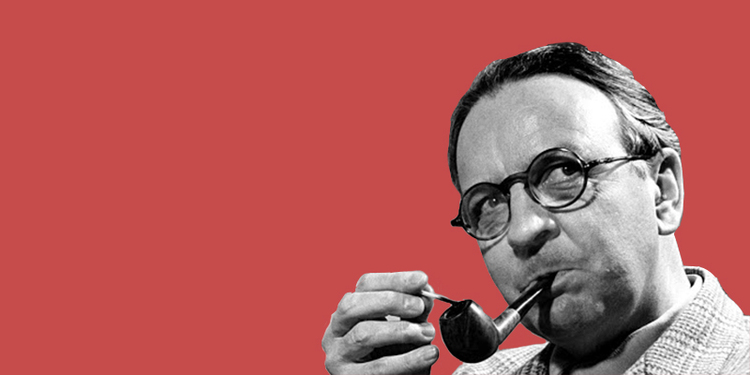
Some Facts About Raymond Chandler
By Steve Sailer
01/29/2013
Detective novelist Raymond Chandler, creator of the Philip Marlowe mysteries (such as The Big Sleep) is likely the most important literary figure in Los Angeles history.
45 Calibrations of Raymond Chandler
Peter Straub1. Not long before his death, he wrote, "I have lived my life on the edge of nothing."
2. Those who may speak honestly of the ambiguous but striking privileges granted by a life conducted on the edge of nothing tend to have in common that they have been faced early on with certain kinds of decisively formative experiences. Although it is never mentioned in considerations of his work, when he was six years old and living with his divorced mother in Nebraska, his alcoholic father, already more an absence than a presence, one day disappeared entirely. Also never mentioned is that in 1918 he was sent into trench warfare as a twenty-year-old sergeant in the Canadian Army and several times led his platoon into direct machine-gun fire. After that, he said later, "nothing is ever the same again." …
23. He understood that he was both romantic and sentimental.
24. After his first four books, he thought Philip Marlow was romantic and sentimental, too, and decided that on the whole Marlowe was probably too good to be satisfied with working as a private detective. …
If Chandler wasn’t so romantic and sentimental, he would have figured that out faster. The Tough Guy with a Heart of Gold might be the single most winning formula in novels and movies.
27. He was unfailingly generous to young writers. …
31. He was ripely endowed with the capacities for both love and scorn, sometimes for the same thing. One reason he liked Los Angeles was that he thought it had the personality of a paper cup. …
34. He invented a first-person voice remarkable for its sharpness and accuracy of observation, its attention to musical cadence, purity of syntax and unobtrusive rightness of word order, a metaphorical richness often consciously self-parodic, its finely adjusted speed of movement, sureness of touch and its capacity to remain internally consistent and true to itself over a great emotional range. This voice proved to be unimaginably influential during his lifetime and continues to be so now. Real earned authority sometimes has that effect.
I'd be interested in just how fast Chandler became influential. You can see him being parodied in Bugs Bunny cartoons within a few years of his first novel.
35. None of his imitators, not even the most accomplished, ever came close to surpassing or even matching him.
36. He wrote his English agent, Helga Green, that "to accept a mediocre form and make literature out of it is something of an accomplishment … . We are not always nice people, but essentially we have an ideal that transcends ourselves."
37. Chandler devoted his working life to the demonstration of a principle that should be obvious, that genre writing declares itself first as writing and only secondarily as generic. Because this principle was not always obvious even to himself, he felt defensive about being a mystery writer … .40. He got better as he went along. Every writer presently alive wishes to do the same.
41. Okay. Playback, his last book, really was pretty bad. On the other hand, after it he began a book in which Palm Springs was renamed "Poodle Springs."
Chandler didn’t start writing for money until he lost his job as an oil company executive at 45, and published his first epochal first novel, The Big Sleep, in his early 50s. I think he peaked in his lyrical vein with his second novel, Farewell, My Lovely. Many, however, prefer his last major novel, The Long Goodbye, from his mid-60s, although that’s less lyrical and more of a social novel (for example, this 1953 novel has four significant Mexican-American characters, including what may be the first example of the dignified Chicano police lieutenant whom Edward James Olmos has made a career out of playing).
